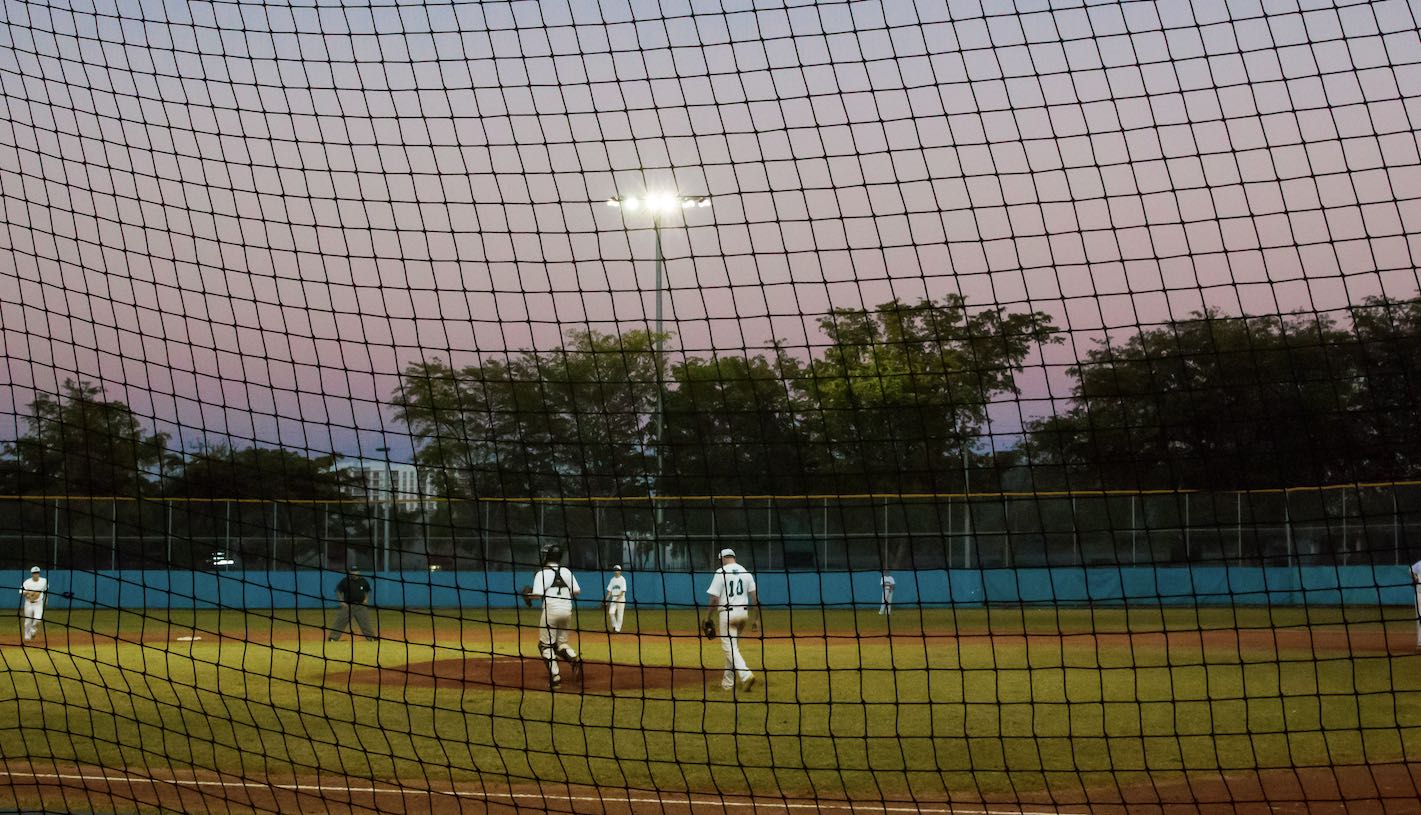People often describe baseball as the United States’ “national pastime.”

What many don’t know, however, it that it’s a favorite pastime in Japan and Cuba as well. Just look at pitcher Yoshinobu Yamamoto, who this past weekend was named World Series Most Valuable Player for helping the Los Angeles Dodgers win the Major League Baseball national championship in the United States.
JAPAN’S MOST POPULAR SPORT
Research shows that baseball is Japan’s most popular sport, deeply embedded in the culture and attracting more than 25 million fans annually through professional leagues and high school tournaments. According to an article on the sports site FiveThirtyEight.com, author Nathaniel Rakich writes that in 2023, Japan’s Nippon Professional Baseball League alone had a total attendance of over 21 million, second only to Major League Baseball in the United States.
A synopsis of Japan’s baseball history on HistoricBaseball.com indicates that baseball was first introduced to the country in 1859, but it was a U.S. teacher named Horace Wilson who first included it as a school sport in 1872. It quickly gained popularity before becoming firmly established in schools and communities by the early 20th century.
Vincent Pena, who is an assistant professor of Sports Communication at DePaul University and a sports scholar, says there is more of a team element to baseball in Japan than there is in the United States.
“Japanese people are very systematic in how they approach the game,” Pena says. “They are highly organized and efficient. They have a very collective kind of society, and it is reflected in their baseball.”
Mike Crosby, who is the head baseball coach at Man High School in Man, W.V., U.S.A., was in extended spring training with MLB’s Pittsburgh Pirates in 1995 before he was offered a minor-league contract with the New York Mets in 1996.
He recalls a time when he was amazed at how much media there was from Japan following a couple of Japanese players who were trying to get into minor league systems with major league organizations.
Japanese people are very systematic in how they approach the game.
“The Japanese following was unreal,” Crosby says. “I bet the media for the Japanese was two, three to one compared to the media that was there for United States baseball players. They were so excited.”

In Japan, while there is still a focus on developing individually as a player, playing the game with a team mentality has more emphasis. Much of this has to do with the honor and pride that Japanese people take.
“I always say that United States baseball should kind of model what you’re seeing out of Japan right now,” says Kris Barrett, who is the head baseball coach at Scott High School in West Virginia. “In practices and infield and outfield routines before a game, everything is meticulous. Everything has a purpose. You are doing everything at game speed, and it is just so fun to watch. They take pride in it.”
Baseball is deeply rooted in tradition and discipline in Japan: Players and fans take immense pride in making their communities and their country look good through the sport of baseball.
Baseball’s impact on Japanese culture and society extends beyond its role as a sport. It promotes values like teamwork, perseverance and respect, which resonate deeply with Japanese social norms.
I always say that United States baseball should kind of model what you’re seeing out of Japan right now.
In Japanese culture, the spirit of “wa” refers to a concept of harmony, peace and unity within a group. According to Japan’s Baseball Journey: From Early Beginnings to Global Influence, this same spirit is reflected in the team dynamics and collective effort that are synonymous with Japanese baseball.
“Once they got one or two guys in MLB, they fell in love with the game of baseball and the publicity and stuff that they put out on their players in their home country was just unreal,” Crosby said of Japanese baseball. “Of course, when they’re doing that, you know that all the Japanese young men and young kids were watching that, and instead of thinking about basketball or football or anything like that, you know they had to be thinking, ‘Man, that’s what I want to do: I want to play baseball.’ Then, their culture in baseball just took off, and now, it is a big-time breeding ground for Major League Baseball.”
BASEBALL IN CUBA
According to “Why is Baseball So Big in Cuba? Exploring Its Cultural and Historical Impact – Baseball Biographies,” baseball was initially introduced in Cuba in the mid-1800s by U.S. sailors and by Cuban students returning from the United States who brought the game back with them.

In an article for CubasBest.com titled “Baseball in Cuba: Culture & How to Catch a Game as a Visitor – Cubas Best,” Sarah Carter writes that professional sports in Cuba were abolished by the government following the 1959 Cuban Revolution. Cuba then launched the Cuban National Series, which remains the country’s premier baseball league today.
Carter acknowledges that baseball quickly gained popularity after the revolution and became more than just a sport — it emerged as a powerful symbol of rebellion against Spanish colonial rule. For that reason, it is understandable that baseball has a unifying effect in Cuba. It reflects the resilience and determination of the Cuban people.
“I don’t think we have a great understanding of the culture of baseball and the way it’s played in Cuba compared to the way we do in Japan, and part of that is because of the political environment of Cuba for a long time,” Pena says.
Pena thinks that the Cuban baseball culture is comparable to the way baseball is played in the United States.
“Kids growing up with the big three sports — basketball, baseball and football — and all three of these are ingrained into the United States psyche,” Pena said. “In much of the same ways, that is what baseball is like in Cuba. They grow up and that is just what they play.”
Barrett believes Cuba has the most baseball-rich culture.
That is what baseball is like in Cuba. They grow up and that is just what they play.
“Baseball in Cuba is just like the Dominican Republic,” Barrett said. “It is celebrated. You can see the way baseball is loved in Cuba is the way the NFL is loved here in the U.S.”
“Baseball in Cuba drives their economics. It drives international relations. It is woven within their culture,” he added. “You see so many young kids that are Cuban, and you think of Yasiel Puig who came over here and defected from Cuba and risked his life just to get away from the island and try to better himself. Baseball is a way to change your life in Cuba if you have the opportunity.”
Because of its rich history with baseball, Cuban baseball focuses more on teamwork, collective effort and discipline than it does in the United States. While U.S. baseball tends to prioritize individual performance, Cuban baseball takes on a more team-level approach.
Aroldis Chapman, “The Cuban Missile,” is an excellent example of the effort and determination displayed by Cuban baseball players. Throwing 100+ mile-per-hour/161 kilometer-per-hour fastballs, he quickly became a fan favorite everywhere he went once he started playing baseball in the United States.
The emphasis is not on individual performance; it is on performance as a team, perhaps because baseball is more than just a game in Cuba. According to “Why is Baseball So Big in Cuba? Exploring Its Cultural and Historical Impact – Baseball Biographies,” the game “represents a significant part of the nation’s cultural identity.”
“Luis Tiant had a famous quote that said, ‘You don’t walk to get off the island.’ You hit to get off the island,’” Barrett says. “He was talking about his way of defecting from Cuba because, for a long time, it was under dictatorship. Baseball down there is an everyday life-type thing.”

















